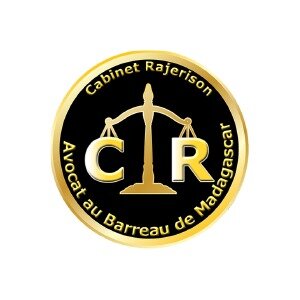Best Real Estate Contracts and Negotiations Lawyers in Madagascar
Share your needs with us, get contacted by law firms.
Free. Takes 2 min.
Free Guide to Hiring a Real Estate Lawyer
Or refine your search by selecting a city:
List of the best lawyers in Madagascar
About Real Estate Contracts and Negotiations in Madagascar
Real estate contracts and negotiations in Madagascar involve a wide range of activities related to the purchase, sale, lease, and management of property. These contracts serve as binding agreements between parties and outline the rights, responsibilities, and obligations of all involved. Real estate negotiations, on the other hand, aim to reach mutually beneficial agreements that satisfy all parties. Understanding the legal framework surrounding these contracts and negotiations is essential for successful real estate transactions in Madagascar.
Law in Madagascar: A Brief Overview of Real Estate Contracts and Negotiations
Real estate law in Madagascar is governed primarily by the Civil Code and other related statutes that dictate how property transactions should be conducted. The legal framework provides comprehensive guidelines on how contracts should be drafted, executed, and enforced. While Madagascan real estate law draws influence from both customary practices and formal statutes, navigating these laws can be complex for those unfamiliar with the local legal environment.
Why You May Need a Lawyer
There are several situations where seeking legal advice on real estate contracts and negotiations in Madagascar can be beneficial:
- Drafting or reviewing real estate purchase agreements to ensure all legal requirements are met.
- Assisting in negotiations to resolve disputes between buyers and sellers.
- Handling the legal aspects of lease agreements, including tenant rights and landlord obligations.
- Facilitating due diligence to verify property titles and ensure there are no encumbrances.
- Providing advice on compliance with zoning laws and building codes.
Local Laws Overview
Here are key aspects of Madagascar’s local laws relevant to real estate contracts and negotiations:
- Ownership Rules: There are detailed regulations surrounding the ownership of land and property, including restrictions for non-citizens.
- Property Registration: Proper registration with governmental agencies is required for enforcement of real estate contracts.
- Tax Considerations: Understanding the tax obligations for property transactions is crucial.
- Dispute Resolution: The legal system provides channels for resolving disputes, which often requires legal representation.
- Environmental Regulations: Compliance with environmental laws and regulations is necessary for property development and construction.
Frequently Asked Questions
What is required to formalize a real estate contract in Madagascar?
A real estate contract in Madagascar should be in writing and include details such as property description, price, payment terms, and the obligations of each party. It must be signed by all parties involved and notarized.
Can foreigners own real estate in Madagascar?
Generally, foreign nationals face restrictions on owning land in Madagascar. However, they are allowed to lease properties or use alternative legal structures to invest in real estate.
How are property disputes resolved in Madagascar?
Property disputes are typically resolved through mediation or court proceedings. It is advisable to have a lawyer represent you during these processes.
Are verbal agreements enforceable in real estate transactions?
Verbal agreements are generally not recognized as enforceable for real estate transactions. It is recommended to have all agreements in writing and legally documented.
What is a notary’s role in real estate contracts?
A notary in Madagascar plays a crucial role in authenticating real estate contracts. Their presence is necessary to ensure that the transaction is legally binding.
What taxes apply to real estate transactions?
Taxes such as the registration fee, property tax, and capital gains tax may apply, depending on the nature and scope of the transaction.
How can I verify a property title in Madagascar?
Verification of property titles can be carried out through the national property registry. It's a crucial step to ensure there are no legal impediments.
What should I consider before purchasing property in Madagascar?
Consider factors such as the property's legal status, any applicable zoning laws, and potential environmental issues before purchasing.
How long does it take to complete a real estate transaction?
The time to complete a transaction varies, depending on various factors such as negotiations, due diligence, and compliance with legal requirements.
What legal fees should I expect?
Legal fees can vary widely based on the complexity of the transaction and the services required. It is important to discuss fees upfront with your lawyer.
Additional Resources
Here are some resources and organizations that may be helpful:
- Ministry of Land Development: for information on land policies and regulations.
- Local Bar Associations: for finding qualified real estate lawyers.
- Chamber of Notaries: for assistance with contract notarization.
Next Steps
If you require legal assistance for real estate contracts and negotiations in Madagascar, consider taking the following steps:
- Consult with a qualified real estate lawyer who specializes in Madagascan property law.
- Ensure all agreements are in writing and properly notarized.
- Engage in thorough due diligence before entering any transaction.
- Contact the relevant governmental bodies for guidance on compliance issues.
Lawzana helps you find the best lawyers and law firms in Madagascar through a curated and pre-screened list of qualified legal professionals. Our platform offers rankings and detailed profiles of attorneys and law firms, allowing you to compare based on practice areas, including Real Estate Contracts and Negotiations, experience, and client feedback.
Each profile includes a description of the firm's areas of practice, client reviews, team members and partners, year of establishment, spoken languages, office locations, contact information, social media presence, and any published articles or resources. Most firms on our platform speak English and are experienced in both local and international legal matters.
Get a quote from top-rated law firms in Madagascar — quickly, securely, and without unnecessary hassle.
Disclaimer:
The information provided on this page is for general informational purposes only and does not constitute legal advice. While we strive to ensure the accuracy and relevance of the content, legal information may change over time, and interpretations of the law can vary. You should always consult with a qualified legal professional for advice specific to your situation.
We disclaim all liability for actions taken or not taken based on the content of this page. If you believe any information is incorrect or outdated, please contact us, and we will review and update it where appropriate.
Browse real estate contracts and negotiations law firms by city in Madagascar
Refine your search by selecting a city.














